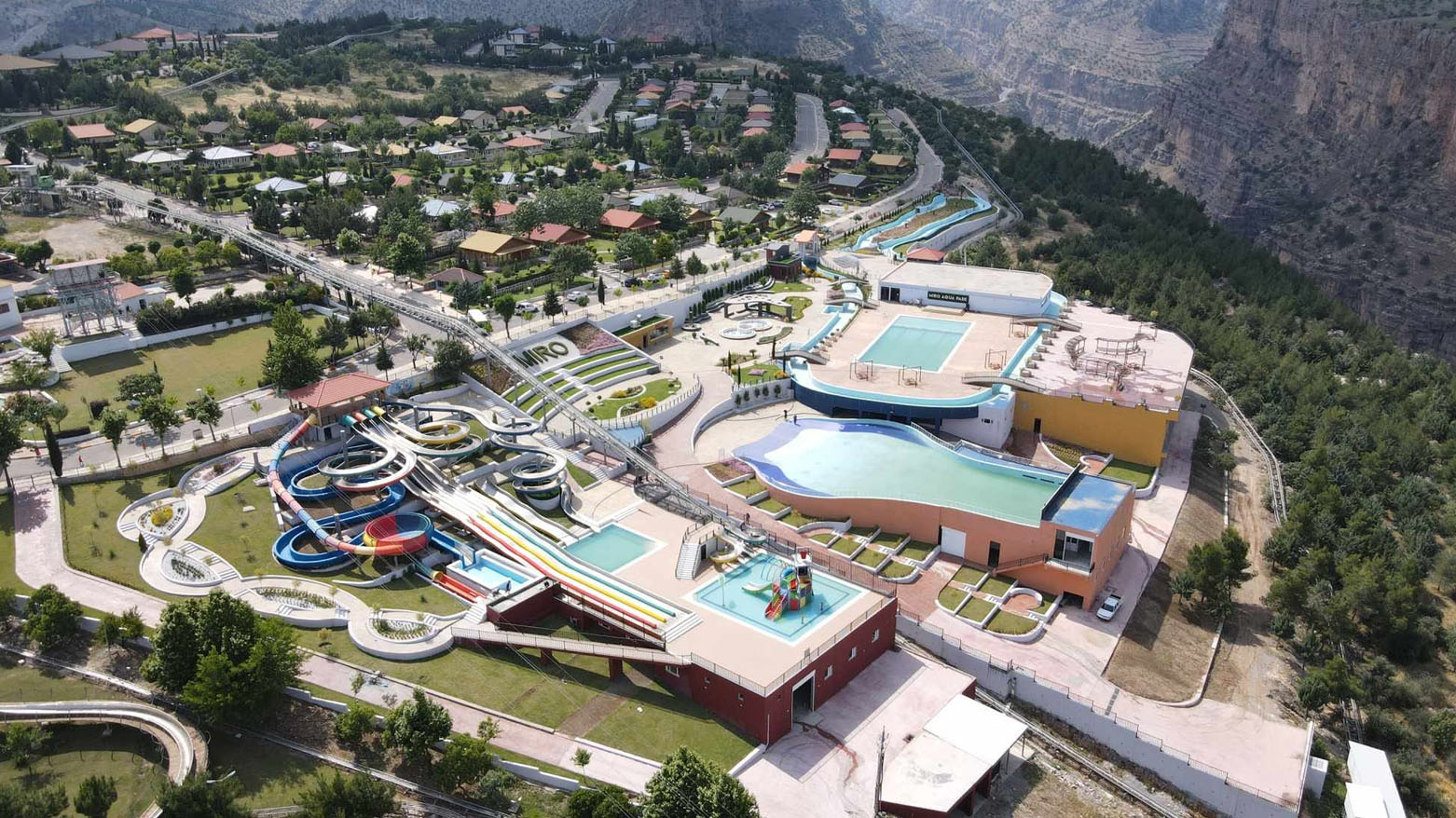Soran Independent Administration Outlines Major Tourism Development Plans
Speaking to Kurdistan24 on Wednesday, Sadiq revealed that several new projects are underway to enhance the region’s appeal to both domestic and international visitors.

ERBIL (Kurdistan24) – The Soran Independent Administration is set to strengthen its position as a leading tourism hub in the Kurdistan Region, according to Faisal Sadiq, Director General of Tourism for the administration.
Speaking to Kurdistan24 on Wednesday, Sadiq revealed that several new projects are underway to enhance the region’s appeal to both domestic and international visitors. He noted that once completed, these initiatives are expected to significantly increase tourist numbers.
Among the most prominent projects are the tourism master plans for Geli Ali Bag and Bekhal resorts, as well as Babpshtian Mountain, which Sadiq described as priorities for the administration. “Working on Kawlokan Corniche is one of our initiatives in the tourism sector, but this project is still in its early stages, and there is much work ahead,” he said.
He emphasized that the projects are not only designed to showcase the region’s natural beauty but also to create a comfortable environment for families and generate thousands of job opportunities. Plans are also in place for tourism development in Choman, Sidakan, Khalifan, and several other districts.
Tourist destinations in the area, including Jundian, Balakayati, Sidakan, and Khalifan, are already considered some of the Kurdistan Region’s most attractive locations, renowned for their cool climate, scenic landscapes, and rich cultural values.
With these new investments, Soran aims to position itself as one of the most important tourism centers in the region.
The Kurdistan Regional Government (KRG) on August 18, announced the 'Rupesand' tourism project within the Soran Independent Administration, which stretches along the Jundian River and encompasses 90 percent green space.
The General Director of Soran Municipality, Dilovan Omar, told Kurdistan24 that the ‘Rupesand’ complex is a comprehensive tourism initiative along the Soran– Jundian route, comprising 35 motel units with river views, 10 sales kiosks, and nine resting pavilions. “Visiting the site is currently free for tourists, although new regulations on accessibility may be introduced in the future,” he added.
Omar highlighted the facilities included in the project, emphasizing its design to serve both recreation and leisure: restaurants, supermarkets, a sports center, a three-story observation tower, a children’s playground, landscaped gardens and green zones, water treatment units, service areas, and modern parking lots. He further noted that 90 percent of the project is dedicated to green space, adhering to high environmental protection standards.
The "Rupesand" project is part of the broader KRG strategy to develop the tourism sector as a key pillar for diversifying the region’s economy beyond oil revenues. Recognizing the potential of the Kurdistan Region’s natural landscapes, historical sites, and vibrant cultural heritage, the KRG has invested in both urban and rural tourism infrastructure to attract domestic and international visitors.
KRG initiatives focus on several interrelated goals. Firstly, they aim to promote Kurdish culture and heritage through the preservation of historical landmarks, traditional villages, and local festivals. Visitors are increasingly offered experiences that highlight Kurdish music, dance, and handicrafts, providing a bridge between cultural preservation and economic opportunity.
Secondly, the program supports local artisans and producers, integrating markets for handmade crafts, textiles, and regional food products into tourism sites. This not only enhances the authenticity of the visitor experience but also provides sustainable income streams for communities, fostering entrepreneurship and small business development.
Additionally, the KRG has emphasized environmentally sustainable development. Many tourism projects, including Rupesand, allocate a high proportion of space to greenery and natural preservation, while also incorporating modern waste management and water conservation systems. Eco-tourism is increasingly promoted to protect the region’s natural assets while accommodating growing tourist demand.
Through these measures, the KRG seeks to position tourism as a cornerstone of non-oil revenue generation, reducing the region’s economic dependence on hydrocarbons. By combining investment in infrastructure, cultural promotion, and environmental protection, the government hopes to create a vibrant, year-round tourism industry that can contribute to employment, local business growth, and international recognition of the Kurdistan Region as a cultural and recreational destination.
